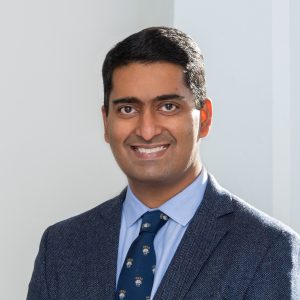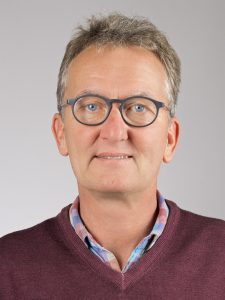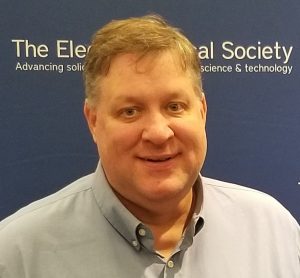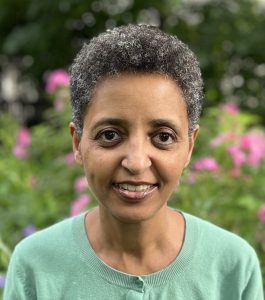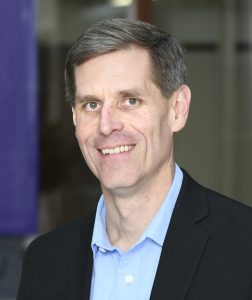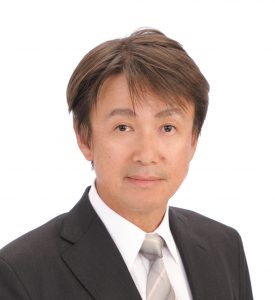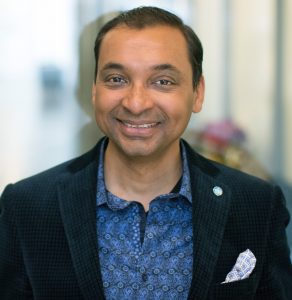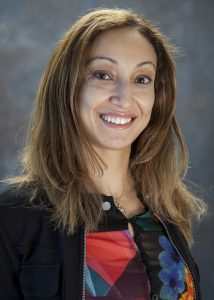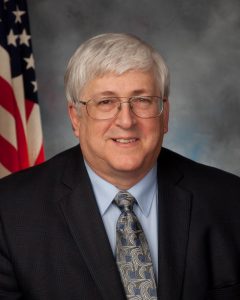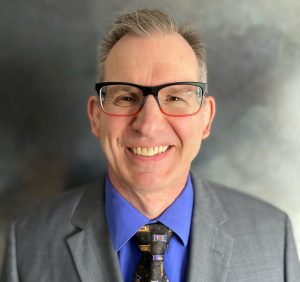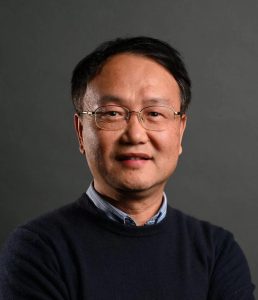Pennington, NJ – The Electrochemical Society (ECS) has named 13 members to the 2024 Class of ECS Fellows. The designation “Fellow of The Electrochemical Society” was established in 1989 for advanced individual technological contributions to the fields of electrochemistry and solid state science and technology, and for service to the Society. These members are recognized for scientific achievements, leadership, and active participation in ECS affairs. Each year, up to 15 renowned scientists and engineers are chosen by their peers for this honor.
The 2024 ECS Fellows are (listed alphabetically): Rohan Akolkar, Case Western Reserve University; Felix N. Büchi, Paul Scherrer Institut; David Cliffel, Vanderbilt University; Jeffrey Elam, Argonne National Laboratory; Sossina M. Haile, Northwestern University; Mark C. Hersam, Northwestern University; Masayuki Itagaki, Tokyo University of Science; Song Jin, University of Wisconsin–Madison; Sushanta Mitra, University of Waterloo; Rana Mohtadi, Toyota Research Institute of North America; David A. Shifler, Office of Naval Research; Jean St-Pierre, Cummins Inc.; Yong Yang, Xiamen University.
2024 Fellows of The Electrochemical Society
Rohan Akolkar is the Milton and Tamar Maltz Professor of Energy Innovation at Case Western Reserve University (CWRU). He is an Ohio Eminent Scholar in Advanced Energy Research, serves as Faculty Director of CWRU’s Great Lakes Energy Institute, and holds a joint appointment as Chief Scientist at Pacific Northwest National Laboratory. His research spans many areas of electrochemical engineering, embracing electrodeposition, electrometallurgy, and electrochemical materials development for applications in nano-electronics, batteries, sensors, and in extracting and refining critical materials. He has made important contributions to fundamental and applied electrochemistry including patented electrochemical processes and materials which enabled high-performance interconnects in advanced semiconductor devices; novel electrowinning and electrorefining processes for the extraction and recycling of metals; fundamental studies unraveling mechanisms of dendrite formation in batteries; and a novel sensor for detecting heavy-metal contaminants in water.
Prof. Akolkar received a PhD in Chemical Engineering from CWRU in 2004. He worked in industrial R&D at Intel Corporation for eight years before joining the CWRU faculty in 2012. His research has been recognized by CWRU’s School of Engineering Innovation and Research Awards, 2023 ECS Electrodeposition Division Research Award, 2004 ECS Norman Hackerman Young Author Award, and during his tenure at Intel, numerous industry awards. In 2021, he was elected Senior Member of the National Academy of Inventors. Prof. Alkokar joined ECS in 2009, served as Associate Editor of the Journal of The Electrochemical Society, and currently is the inaugural Editor-in-Chief of ECS Advances, as well as Secretary of the ECS Electrodeposition Division.
Felix N. Büchi is Group Head at the Electrochemistry Laboratory at Paul Scherrer Institut (PSI) Center for Energy and Environmental Sciences. He graduated as a Chemist from the Universität Bern, received a PhD in Fundamental Electrochemistry in 1989, and then joined Alan Bond’s group at Deakin University as a Postdoctoral Fellow. In 1991, Dr. Büchi became a Staff Scientist in PSI’s Electrochemistry Laboratory, working on PEM fuel cell technology. Dr. Büchi spent a year as Guest Scientist in S. Srinivasan’s group at Texas A&M University (1994-1995). He became leader of the PSI Fuel Cell Systems and Diagnostics group in 2002, experimenting with the engineering of mobile fuel cell systems and material developments. On the diagnostics level, he and his team focused on the development of X-ray imaging under operando conditions to characterize mass transport and two-phase flow in the porous materials of PEM fuel cells and electrolyzers. Advancing this important characterization/imaging technology of electrochemical converters has resulted in about 50 dedicated papers since 2009. From 2018-2024, he also served as the head of PSI’s Electrochemistry Laboratory. Dr. Büchi became an ECS member in 1994.
David Cliffel is the Cornelius Vanderbilt Professor and Vice Chair and Director of Graduate Studies in the Department of Chemistry at Vanderbilt University. His innovative research group focuses on electroanalytical measurements and sensor development in nanoscale and biological systems, and created multianalyte microphysiometry by combining microfluidic technologies with electrochemical detection to study the dynamic behaviors of metabolic pathways with potential applications in cancer, diabetes, and toxicology. In addition, he developed Photosystem I-based biohybrid solar cells using photosynthetic protein molecules isolated from spinach leaves. His aim is to increase direct charge transfer between Photosystem I protein molecules and the electrode surface, using small molecule mediators, nano-carbon materials, conductive polymers, and nanoparticles.
Prof. Cliffel received his PhD in Chemistry from the University of Texas at Austin in 1998 under the direction of Allen J. Bard, was a Postdoctoral Assistant with Royce W. Murray at the University of North Carolina-Chapel Hill, and joined Vanderbilt University in September 2000. He has published over 130 peer-reviewed journal articles and three book chapters. Prof. Cliffel joined ECS in 1996 and has served as JES’ Technical Editor for Physical and Analytical Electrochemistry, Electrocatalysis, and Photoelectrochemistry since 2016.
Jeffrey Elam is a Distinguished Fellow, Senior Chemist, and Group Leader in the Applied Materials Division at Argonne National Laboratory. His research focuses on building a fundamental understanding of the chemical mechanisms for thin film growth with an emphasis on atomic layer deposition. Dr. Elam has advanced the science and technology of thin film coatings to solve critical materials challenges. He helped develop the world’s largest microchannel plate (MCP), a solid state, 2D electron amplifier critical to a variety of imaging and sensing applications. Dr. Elam used nanocomposite coatings to create a manufacturing strategy for MCPs that drove down cost, improved performance, and widened applications. He co-invented the Oleo Sponge, an engineered foam that absorbs oil from water. This reusable sorbent is functionalized to be oleophilic and hydrophobic using sequential infiltration synthesis, a method patented by Elam.
After completing his BA at Cornell University, Dr. Elam received a PhD in Physical Chemistry from the University of Chicago, followed by a postdoc in Steve George’s group at the University of Colorado, Boulder. He has published over 300 manuscripts and holds more than 90 inventions including licensed patents that have led to commercial products. An AVS Fellow, his work has been recognized by five R&D100 Awards and the 2019 University of Chicago Board of Governors Distinguished Performance Award, 2018 Argonne Lifetime Achievement Award for Commercialization Excellence, 2017 Editor’s Choice Top Invention Award, and 2017 AVS ALD Innovation Award. He joined ECS in 2007.
Sossina M. Haile is the Walter P. Murphy Professor of Materials Science and Engineering at Northwestern University (NU). Her research broadly encompasses materials, especially oxides, for sustainable electrochemical energy technologies. Her work in fuel cell science and technology has pushed the field to new insights and record performance metrics. In parallel, she has created new avenues for harnessing sunlight to meet rising energy demands and demonstrated viable solutions to the challenge of hydrogen delivery.
Prof. Haile earned her PhD in Materials Science and Engineering from the Massachusetts Institute of Technology in 1992. She was a California Institute of Technology faculty member for 18 years before joining NU in 2015. Among her many awards, she received the 2020 Turnbull Lectureship, 2012 International Ceramics Prize, 2010 Chemical Pioneer Award, and in 2008, an American Competitiveness and Innovation (ACI) Fellowship from the U.S. National Science Foundation in recognition of “her timely and transformative research in the energy field and her dedication to inclusive mentoring, education and outreach across many levels.” She is a Fellow of the Materials Research Society, American Ceramics Society, Royal Society of Chemistry, African Academy of Sciences, and Ethiopian Academy of Sciences, and serves on the editorial boards of Joule and MRS Energy and Sustainability. Currently, she is on the DOE Basic Energy Sciences Advisory Board and the non-profit Ethiopia Education Initiatives board. She joined ECS in 2006.
Mark C. Hersam is the Walter P. Murphy Professor of Materials Science and Engineering, Director of the Materials Research Center, and Chair of the Materials Science and Engineering Department at Northwestern University. He also holds faculty appointments in the Departments of Chemistry, Applied Physics, Medicine, and Electrical Engineering. His research interests include nanomaterials, additive manufacturing, nanoelectronics, scanning probe microscopy, renewable energy, and quantum information science.
Prof. Hersam earned a BS in Electrical Engineering from the University of Illinois at Urbana-Champaign (UIUC) in 1996, MPh in Physics from the University of Cambridge in 1997, and PhD in Electrical Engineering from UIUC in 2000. Dr. Hersam has received honors including the Presidential Early Career Award for Scientists and Engineers, TMS Robert Lansing Hardy Award, MRS Mid-Career Researcher Award, AVS Medard Welch Award, U.S. Science Envoy, MacArthur Fellowship, and eight Teacher of the Year Awards. Dr. Hersam has been repeatedly named a Clarivate Analytics Highly Cited Researcher with over 700 peer-reviewed publications and over 70,000 citations. An elected member of the American Academy of Arts and Sciences, National Academy of Engineering, and National Academy of Inventors with over 170 issued and pending patents, Dr. Hersam has founded two companies, NanoIntegris and Volexion, which are suppliers of nanoelectronic and battery materials, respectively. Dr. Hersam is a Fellow of MRS, ACS, AVS, APS, AAAS, SPIE, and IEEE, and serves as an Executive Editor of ACS Nano. An ECS member since 2007, he received the 2010 Nanocarbons SES Research Young Investigator Award.
Masayuki Itagaki is a Professor in the Department of Pure and Applied Chemistry in the Faculty of Science and Technology at the Tokyo University of Science. He is known for his contributions to theories of electrochemical impedance spectroscopy, i.e., 3D impedance measurement, transmission line models for fractal structure, Faraday impedance for metal dissolution and passivation, and combination with channel flow electrodes. With his co-workers, he successfully explored the electrochemistry of localized corrosion, corrosion sensors, electro and electroless plating, fuel cells, biosensors, and Li-ion batteries.
Prof. Itagaki received a PhD in Metallurgical Engineering from the Tokyo Institute of Technology in 1993, followed by a postdoctorate in the Corrosion Laboratory at the Université de Bourgogne. He was named Assistant Professor at the Tokyo University of Science in 1994, Lecturer in 1998, Associate Professor in 2001, and full Professor in 2005. Prof. Itagaki joined ECS in 1997 and served as Chair of the ECS Corrosion Division (2018-2020) and member of the Board of Directors (2018-2020). Since 2020, he has convened the ISO technical group working on electrochemical test methods for corrosion of metals and alloys (ISO/TC156/WG11) and taken part in establishing many international standards for test methods for corrosion engineering. The author of more than 300 original research papers in the field of electrochemistry, he chaired the 9th International Symposium on Electrochemical Impedance Spectroscopy (EIS 2013) and 2nd Asian Symposium on Electrochemical Impedance Spectroscopy.
Song Jin is the Francis J. DiSalvo Professor of Physical Science at the University of Wisconsin–Madison. His research interests focus on the chemistry, physics, and technological applications of nanoscale and solid state materials. He developed innovative syntheses of a variety of nanomaterials including metal chalcogenides, silicides, and halide perovskites, and discovered and developed the screw dislocation-driven growth of nanomaterials. Building on the fundamental understanding of novel physical properties, Prof. Jin advanced the exploitation of (nano)materials for electrocatalysis, photoelectrochemical solar energy conversion, electrochemical energy storage, optoelectronics, nanospintronics, and biotechnology.
Prof. Jin received his BS in Chemistry from Peking University in 1997, PhD in 2002 from Cornell University under the direction of Prof. Francis J. DISALVO, and completed postdoctoral research under Prof. Charles M. Lieber at Harvard University. He has authored or co-authored over 270 publications and 13 patents. Prof. Jin serves as a Senior Editor for ACS Energy Letters. Recognition of his achievements includes in 2022, the WARF Named Professorship at UW–Madison, 2014 ACS Inorganic Nanoscience Award, 2013 H. I. Romnes Faculty Fellowship, 2012 Vilas Associate Award, 2012 Research Corporation Scialog Collaborative Innovation Award for Solar Energy Conversion, 2011 Research Corporation Scialog Award for Solar Energy Conversion, 2009 Alfred P. Sloan Research Fellowship, 2008 ACS ExxonMobil Solid State Chemistry Fellowship, 2007 Research Corporation Cottrell Scholar Award, 2006 MIT Technology Review TR35 Award (Top 35 Young Innovators under the age of 35), and 2006 NSF CAREER Award. Web of Science has identified Prof. Jin as a Highly Cited Researcher continuously since 2018. He became an ECS member in 2008.
Sushanta Mitra is Full Professor in the Department of Mechanical and Mechatronics Engineering at the University of Waterloo with cross-appointments in Chemical Engineering, Electrical and Computer Engineering, Physics and Astronomy, and Chemistry. As the Executive Director of the Waterloo Institute for Nanotechnology (WIN), Prof. Mitra spearheads Canada’s largest nanotechnology institute, a hub for cutting-edge research and innovation. He is the Founder and CEO of successful Canadian and Dutch start-ups, bridging scientific innovation with practical applications.
Prof. Mitra completed a BS at Jadavpur University (1995), MS at University of Victoria (1997), and PhD in Mechanical Engineering at the University of Waterloo (2001). Prior to joining Waterloo’s faculty, Prof. Mitra served as Department Chair at the Lassonde School of Engineering, Associate Vice-President Research at York University, and Assistant Vice-President Research at the University of Alberta. He is a Fellow of the Canadian Academy of Engineering, American Society of Mechanical Engineers, Canadian Society for Mechanical Engineering, Engineering Institute of Canada, Royal Society of Chemistry, American Physical Society, American Association for the Advancement of Science, Indian National Academy of Engineering, and National Academy of Sciences India. His work has garnered significant recognition including UWaterloo’s 2018 and 2020 President’s Excellence in Teaching and Research awards; American Society of Mechanical Engineers 2019 Prominent Researcher Award and 2011 Outstanding Researcher Award; 2018 NRI Welfare Society of India Hind Rattan Award (Jewel of India); 2015, 2016, and 2017 York University Research Leaders Awards; and 2015 Ontario Society of Professional Engineers Engineering Excellence Medal. He joined ECS in 2012.
Rana Mohtadi is a Senior Principal Scientist at Toyota Research Institute of North America (TRINA) and holds a Principal Investigator affiliate position at the Advanced Institute for Materials Research (AIMR) at Tohoku University. She established and spearheaded research programs aimed at the design and demonstration of high value materials for chemical and electrochemical energy storage technologies. Her research encompasses the development of liquid and solid state electrolyte materials for mono and multivalent beyond-Li-ion batteries, the creation of environmentally friendly chemistries, enabling sustainable batteries, and developing hydrogen storage materials. Her groundbreaking work has led to transformative material advancements resulting in technology handovers for application considerations and influential peer-reviewed articles, including her pioneering work that closed key gaps and uncovered unexpected fundamental interfacial phenomena that set a new trend of electrolytes research in multivalent batteries.
Dr. Mohtadi received her PhD in Chemical Engineering from the University of South Carolina where she researched proton exchange membrane PEM fuel cells. She has published in the areas of batteries, hydrogen storage materials, and fuel cells, and holds over 35 patents. The recipient of a 2011 R&D 100 award, she was named in “40 under 40” in 2014 by Automotive News and Crain’s Detroit Business News, and recognized and showcased as a face of cutting-edge innovation in Michigan State in the governor’s 2015 “We Run On Brain Power” initiative. She became an ECS member in 2003.
David A. Shifler is a Science & Technology Program Officer at the Office of Naval Research (ONR) supporting fundamental research of high temperature propulsion materials for aircraft and shipboard gas turbine engines. He also manages and supports fundamental and applied research in ONR’s program on corrosion science and corrosion control technologies. Dr. Shifler is responsible for recognizing promising new scientific and technological concepts and findings in their infancy and evaluating their feasibility for, and applicability, to Department of Navy (DoN) missions. He supports research in the creation, development, and characterization of materials by involving the use of integrated computational materials science and engineering with experimental validation to develop models describing material degradation and corrosion mechanisms and phenomena as well as material processes that guide understanding of materials performance and drive further materials innovations. In the Corrosion Program, Dr. Shifler seeks to create a science-based understanding of corrosion and protective options through damage evolution mechanisms, corrosion-informed materials concepts, processing, electrochemistry, and surface protection and modification sciences.
After completing a BA in Chemistry at Western Maryland College (1973), Dr. Shifler earned his MSE and PhD at Johns Hopkins University under Drs. Patrick Moran and Jerome Kruger, exploring the phenomena of nonaqueous corrosion. He spent over 20 years in industry before joining ONR. A Fellow of NACE International, ASM International, Institute of Corrosion, American Association for the Advance of Science, and Washington Academy of Sciences, Dr. Shifler received NACE International’s 2016 Frank Newman Speller Award for outstanding national and international contributions to corrosion engineering. He has written and/or edited three books (including LaQue’s Handbook of Marine Corrosion, 2nd Edition, [ECS Series of Texts and Monographs, Wiley, 2022]), and numerous book chapters and technical papers. An ECS member for more than 35 years, he served as Chair or Co-chair of ECS aqueous and high temperature symposia and on numerous administrative committees.
Jean St-Pierre is Technical Advisor at Cummins Inc. and Affiliate Graduate Faculty/Adjunct in the Department of Electrical and Computer Engineering at the University of Hawaiʻi at Mānoa. His research focuses mostly on degradation aspects of proton exchange membrane fuel cells (PEMFCs) for heavy duty applications and proton exchange membrane water electrolyzers (PEMWEs), including contamination and the behavior of PEMFCs below water’s freezing point.
After completing a PhD in Metallurgical Engineering at Polytechnique Montréal, he held the positions of Principal Research Scientist, Research Professor, and Researcher at, respectively, Ballard Power Systems (1995-2005), an acknowledged fuel cell manufacturing leader; University of South Carolina (2006-2010), formerly the site of the sole National Science Foundation industry/university collaborative research center for fuel cells; and the Hawaiʻi Natural Energy Institute (2010-2021). Dr. St-Pierre has published more than 85 journal papers and book chapters with more than 6,000 citations and contributed to 30+ patents. He joined ECS in 1984 and has been active with the Finance Committee (2014-2018), ECS Energy Technology Division (Treasurer, Secretary, Vice Chair, and Chair, 2005-2013), and currently as a member of the Honors & Awards Committee (2012-2024) and PRiME 2024 Organizing Committee (2022-2024). Dr. St-Pierre received the first ECS Canada Section Student Award (1988) and currently is co-editor of the JES focus issues on PEMFC and PEMWE durability (2018, 2021, 2024). An editorial board member of Molecules, Dr. St-Pierre co-edited the special issue on PEMFCs.
Yong Yang is Distinguished Professor in Chemistry in the State Key Lab for Physical Chemistry of Solid Surfaces at Xiamen University. His main research interests are electrode/electrolyte materials for high-energy density batteries, solid state batteries, interfacial electrochemical reaction mechanisms and in situ spectroscopic techniques such as NMR and XAS, and Li-ion battery ageing and degradation analysis for power and storage applications.
Prof. Yang received his BSc (1984) and PhD (1992) in Physical Chemistry from Xiamen University. After joining the university’s faculty in 1993, he was promoted to his current position in 2005. He was a Visiting Scholar in the Physical and Theoretical Chemistry Lab at Oxford University from 1997-1998 and Director of Electrochemistry and Electrochemical Engineering Research Institute at Xiamen University between 2008-2018. The author of over 500 papers in refereed national and international journals with a Google h-index of 93, he is the lead editor of Solid State Electrochemistry (Chemical Industry Press, 2017 [Chinese language edition]) and NMR/MRI of Electrochemical Energy Storage Materials and Devices (Royal Society of Chemistry, 2021 [English language edition]). Prof. Yang received notable awards including the 2020 ECS Battery Division Technology Award, 2017 Chinese Electrochemical Society Distinguished Contribution Award, 2014 International Battery Materials Association Technology Award, and 1999 National Natural Science Foundation of China Outstanding Young Scholar Fund award. He has been Editor for J Power Sources since 2016. The President of the International Battery Materials Association for the 2024-2025 term, Prof. Yang is a board member of the International Meeting on Lithium Batteries (2012-present) and International Battery Materials Association (2015-present). Over the last 30 years, he mentored more than 120+ postdocs, PhD, and MS students. He became an ECS member in 1997.
The Electrochemical Society
The nonprofit professional Electrochemical Society has led the world in electrochemistry and solid state science and technology and allied subjects since 1902. We advance scientific theory and practice through publications, meetings, continuing education, and collaboration. Our robust global membership develops solutions to the planet’s major challenges. Scientists, engineers, and industry leaders share research at ECS biannual, co-hosted, and sponsored meetings. The ECS Digital Library on IOPscience hosts abstracts and highly peer-reviewed articles from publications including the Journal of The Electrochemical Society (the oldest journal in its field), ECS Journal of Solid State Science and Technology, and new open access journals ECS Sensors Plus and ECS Advances.
Media Contact
The Electrochemical Society
Shannon Reed
Director of Community Relations
609.737.1902, Ext. 107
Shannon.Reed@electrochem.org

